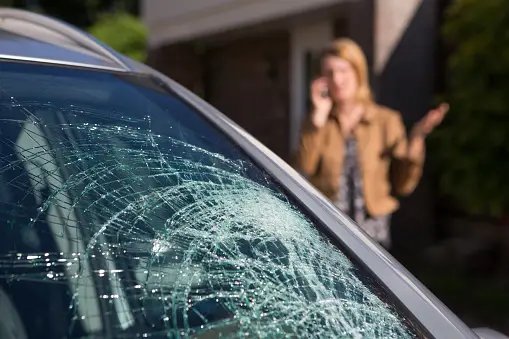Is Rain Bad for a Cracked Windshield?
The impact of rain on a cracked windshield is a common concern among vehicle owners. This article seeks to address this question directly, exploring the effects of rain on a windshield already compromised by cracks. By examining the potential risks associated with exposure to rain, readers can gain insight into the importance of addressing windshield damage promptly and implementing appropriate protective measures.
Through a practical understanding of how rain interacts with a cracked windshield, individuals can make informed decisions regarding maintenance and repair to ensure the safety and longevity of their vehicle.
Rain and Visibility
When it rains, your visibility through a cracked windshield can be significantly reduced. A cracked windshield already poses a risk to your safety, but when rainwater enters the cracks, it further impairs your ability to see clearly.
The water droplets that accumulate on the windshield create a distorted view, making it challenging to navigate the road ahead. The cracks in the glass can cause the rainwater to spread unevenly across the surface, causing even more visual obstructions.
As a result, your reaction time to potential hazards is compromised, increasing the likelihood of accidents.
It's crucial to address any cracks in your windshield promptly to ensure optimal visibility during rainy conditions and maintain your safety on the road.
The Science Behind Windshield Cracks
To understand the science behind windshield cracks, let's start by understanding the role of temperature as a contributing factor. When it comes to your windshield, temperature plays a significant role in its vulnerability to cracking.
Extreme temperature changes, such as going from hot to cold or vice versa, can cause stress on the glass, leading to cracks. This phenomenon is known as thermal stress.
It's important to note that the size and shape of the crack can also be influenced by the temperature at the time of the impact.
When the temperature rapidly changes, the glass expands or contracts at different rates, causing uneven stress distribution. Additionally, temperature fluctuations can weaken the structural integrity of the glass over time, making it more prone to cracks.
So, next time you're driving in extreme weather conditions, be aware of how temperature can impact the health of your windshield.
Increased Risk of Accidents
Driving with a cracked windshield in the rain increases your risk of accidents. The presence of rain already reduces visibility on the road, and when combined with a cracked windshield, the danger intensifies.
Raindrops can distort your view, making it difficult to see other vehicles, pedestrians, or obstacles.
The crack in the windshield can further obstruct your vision, creating blind spots that may lead to collisions.
Moreover, rain can cause your clear windshield to fog up, compounding the visibility issue. It becomes imperative to have a clear and unobstructed view while driving, especially in hazardous weather conditions.
Whether it's hot or cold air, maintaining the right temperature inside your vehicle can help clear your windscreen more effectively , ensuring optimal visibility and safety on the road.
To ensure your safety and the safety of others, it's crucial to repair or replace your cracked windshield before driving in the rain.
Water Leakage and Interior Damage
To prevent water leakage and potential interior damage, it's important to address a cracked windshield promptly. When rainwater seeps into the cracks, it can find its way into the interior of your vehicle, causing damage to the upholstery, carpeting, and electrical components.
The water can also create a breeding ground for mold and mildew, leading to unpleasant odors and health hazards.
Additionally, the moisture can weaken the adhesive that holds the windshield in place, compromising the structural integrity of your vehicle. This can be particularly dangerous in the event of an accident or rollover.
By ignoring a cracked windshield, you're putting yourself and your passengers at risk of not only water damage but also potential injury.
Therefore, it's essential to have your cracked windshield repaired or replaced as soon as possible to avoid water leakage and costly interior damage.
Impact on Windshield Repair
Repairing a cracked windshield can be impacted by the presence of rain, as it can hinder the effectiveness of the repair process. When rainwater gets into the crack, it can make it difficult for the repair resin to properly bond with the glass.
The moisture can dilute the resin and prevent it from filling the crack, resulting in a weaker repair and reducing the overall strength of the windshield.
Additionally, the rain can make it challenging for the technician to accurately assess the extent of the damage and properly clean the area before applying the resin.
Therefore, it's recommended to avoid repairing a cracked windshield during rainy conditions to ensure a successful and long-lasting repair.

Tips to Protect Your Cracked Windshield
To protect your cracked windshield, you should regularly inspect it from certified windshield repair experts and clean it to prevent further damage.
Clean your windshield regularly using a mild glass cleaner and a soft cloth or sponge. Avoid using harsh chemicals or abrasive materials, as they can cause further damage.
Be sure to also keep your windshield wipers in good condition, as worn or damaged wipers can scratch the glass, especially in extreme temperature conditions that may lead to windshield cracks.
Be sure to also keep your windshield wipers in good condition, as worn or damaged wipers can scratch the glass, especially in extreme temperature conditions that may crack a windshield.
To protect your cracked windshield, it's important to take precautions such as parking in covered areas and getting the crack repaired promptly.
